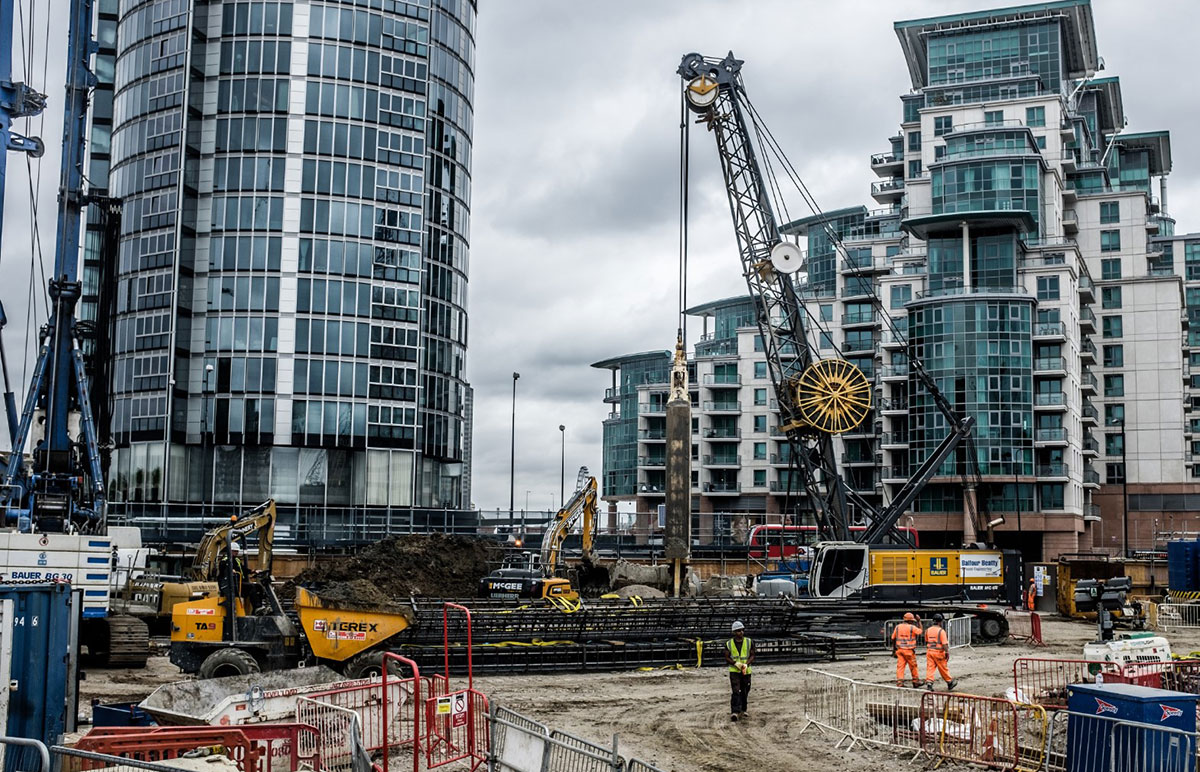The Greatest Guide To Geotheta
Table of ContentsLittle Known Questions About Geotheta.Not known Facts About GeothetaThe Ultimate Guide To GeothetaThe smart Trick of Geotheta That Nobody is DiscussingThe 8-Minute Rule for Geotheta

They conduct website investigations, gather examples, carry out research laboratory tests, and examine information to evaluate the suitability of the ground for building and construction projects - Tailings Engineer. Based upon their searchings for, geotechnical designers offer recommendations for foundation design, slope stability, preserving frameworks, and reduction of geotechnical hazards. They work together with various other specialists, such as architects, structural designers, and building and construction groups, to make sure that geotechnical factors to consider are integrated right into the overall job style and execution
By evaluating the behavior and properties of soil and rock, they can identify potential geotechnical threats such as landslides, soil negotiation, or incline instability. Their proficiency helps stop failures or accidents that might endanger lives and building. Here are some in-depth tasks and responsibilities of a geotechnical designer: Website Investigation: Geotechnical designers conduct site investigations to collect information on subsurface conditions.
They analyze the data to comprehend the properties and habits of the soil and rock, including their stamina, permeability, compaction attributes, and groundwater problems. Geotechnical Evaluation and Style: Geotechnical designers assess the data accumulated throughout website examinations to analyze the stability and suitability of the website for building and construction jobs. They carry out geotechnical computations and modeling to assess factors such as bearing capacity, negotiation, slope stability, lateral earth stress, and groundwater flow.
Some Known Incorrect Statements About Geotheta
Foundation Design: Geotechnical designers play an essential function in developing structures that can safely sustain the designated framework. They assess the dirt conditions and tons demands to identify the ideal foundation type, such as superficial foundations (e.g., grounds), deep structures (e.g (https://soundcloud.com/geotheta)., piles), or specialized strategies like dirt renovation. They think about elements such as settlement limits, birthing capability, and soil-structure interaction to establish ideal structure styles
They evaluate construction strategies, screen site activities, and conduct area examinations to confirm that the layout suggestions are complied with. If unexpected geotechnical concerns emerge, they examine the circumstance and supply recommendations for remediation or changes to the layout. Danger Analysis and Mitigation: Geotechnical designers examine geotechnical dangers and risks connected with the task website, such as landslides, liquefaction, or soil erosion.

Cooperation and Communication: Geotechnical engineers work carefully with other professionals associated with a project, such as engineers, architectural engineers, and construction teams. Effective communication and partnership are important to incorporate geotechnical considerations into the total task design and building and construction procedure. Geotechnical engineers provide technological proficiency, solution queries, and make certain that geotechnical requirements are met.
Rumored Buzz on Geotheta
Below are some types of geotechnical engineers: Structure Engineer: Foundation designers specialize in designing and examining foundations for frameworks. They analyze the soil problems, load demands, and website characteristics to determine one of the most ideal structure type and style, such as shallow structures, deep structures, or specialized techniques like stack foundations.
They assess the aspects influencing slope security, such as soil residential or commercial properties, groundwater conditions, and slope geometry, and create methods to protect against slope failures and mitigate risks. Quake Engineer: Quake designers concentrate on assessing and making structures to endure seismic pressures. They analyze the seismic threat of a website, review dirt liquefaction possibility, and establish seismic design standards to make certain the safety and resilience of structures throughout quakes.
They execute field screening, gather samples, and assess the gathered information to define the dirt homes, geologic formations, and groundwater problems at a site. Geotechnical Instrumentation Engineer: Geotechnical instrumentation engineers concentrate on tracking and gauging the actions of soil, rock, and frameworks. They set up and preserve instrumentation systems that monitor elements such as soil negotiation, groundwater degrees, slope activities, and structural variations to analyze efficiency and offer very early cautions of prospective problems.
Geotheta Fundamentals Explained
They conduct examinations such as triaxial tests, debt consolidation tests, direct shear tests, and permeability tests to collect information for geotechnical analysis and layout. Geosynthetics Designer: Geosynthetics engineers specialize in the design and application of geosynthetic products, such as geotextiles, geogrids, and geomembranes. They use these products to boost soil security, strengthen slopes, give water drainage solutions, and control disintegration.
They have a tendency to be investigatory people, which means they're intellectual, reflective, and investigative. They are interested, methodical, sensible, logical, and logical. Several of them are additionally social, meaning they're kind, generous, participating, patient, caring, practical, empathetic, tactful, and pleasant. Does this seem like you? Take our free career test to locate out if geotechnical engineer is among your top occupation suits.
In the workplace atmosphere, geotechnical designers utilize specialized software program tools to do computations, create layouts, and assess information. They prepare reports, review task specs, interact with customers and staff member, and coordinate project activities. The office setup supplies a favorable atmosphere for research study, evaluation, and cooperation with other Discover More specialists associated with the task.
Geotheta Can Be Fun For Everyone
They frequently see job websites to perform site investigations, assess geotechnical problems, and gather information for analysis. These gos to include traveling to different locations, in some cases in remote or tough terrains. Geotechnical designers might perform soil tasting, conduct examinations, and screen construction activities to make sure that the geotechnical aspects of the job are being applied correctly.
Geotechnical designers likewise operate in specialized geotechnical laboratories. In these centers, they carry out experiments, execute examinations on dirt and rock samples, and examine the engineering properties of the materials. Geotechnical research laboratory engineers function thoroughly in these environments, dealing with screening tools, running instruments, and taping information. They team up with other lab personnel to make certain exact and trusted screening results.